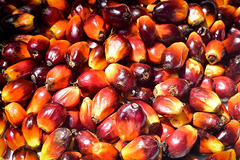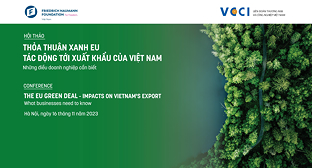PH: Surge in palm oil imports raises fears of dumping
23/11/2018 12:00

Piñol said the Department of Agriculture (DA) was taken aback when palm oil imports jumped by 900 percent on an annual basis and breached 200 million kilograms (kg) in 2017.
“The Philippines right now will look into trade remedies because there was, according to statistics, a huge increase in the arrival of palm oil from both Malaysia and Indonesia. Palm oil arriving in the country breached about 200 million kg,” he told reporters in an interview.
“From only 20 million kg in 2016, palm oil arriving in the country breached about 200 million kg last year. Indonesia was at about 120 million kg,” he added.
While the entry of palm oil imports was legal, Piñol said traders may be dumping the commodity in the country, which he said is a cause for concern for the local coconut sector.
He said he has instructed the DA’s trade remedies office to investigate the import surge to determine the proper measures to be undertaken by the Philippines.
Pending the results of the investigation, the agriculture chief said he would order the slapping of tariffs on palm oil as an immediate measure to avert the further flooding of palm oil in the local market.
“According to our WTO [World Trade Organization] negotiators, the Philippines could invoke a claim of injury of the industry. And for the next 200 days we could impose tariffs on these items so that we will be able to protect our local farmers and local industry from further injury,” he said.
The DA chief said he will “immediately sign the order to address the flooding of palm oil in the country. Because right now it is tariff-free.”
Under Republict Act 8800, or the Special Safeguards Act, the government could slap or increase tariffs or even reimpose quantitative restriction (QR) if an import surge is proven detrimental to the domestic sector concerned.
The agriculture chief could motu proprio conduct a preliminary investigation if the increase in volume of imports is “substantial, or are threatening to substantially cause, serious injury” to the domestic sector.
The results of the preliminary investigation shall be transmitted to the Tariff Commission for the conduct of a formal investigation, according to RA 8800.
However, if delays in the preliminary investigation would cause damage to the domestic sector “which would be difficult to repair,” then the agriculture secretary can immediately issue a written instruction, through the finance secretary, to the customs commissioner for the imposition of a “provisional general safeguard measure.”
“Such measure shall take the form of a tariff increase, either ad valorem or specific, or both, to be paid through a cash bond set at a level sufficient to redress or prevent injury to the domestic industry: Provided, however, that in the case of agricultural products where the tariff increase may not be sufficient to redress or to prevent serious injury to the domestic producer or producers, a quantitative restriction may be set,” RA 8800 read.
“When the provisional safeguard measure is in the form of a tariff increase, such increase shall not be subject or limited to the maximum levels of tariff as set forth in Section 401 [a] of the Tariff and Customs Code of the Philippines,” it added.
Safeguards
Under the WTO Agreement on Safeguards Article 12, a member-country must notify the body if it initiates a special safeguard investigation, or imposed safeguards related to import surge.
The WTO allows the reimposition of QRs and increase of tariffs given that the import surge was proven harmful to a country’s domestic sector.
“A WTO member may take a safeguard action [i.e., restrict imports of a product temporarily] only if the increased imports of the product are found to be causing, or threatening to cause, serious injury,” according to the WTO.
When asked if the Philippines would notify the WTO about its investigation, Piñol replied that he has referred the matter to the DA’s trade remedies team.
Data from the Philippine Statistics Authority (PSA) showed that the country’s imports of palm oil and its fraction (whether refined, but not chemically modified) nearly doubled to 144.509 million kg in January to September, from last year’s 73.571 million kg.
PSA historical data also showed that the nine-month palm oil import volume has already surpassed the total import volume of 95.006 million kg recorded in 2017.
This is also the highest volume of palm oil imported since 2007 and this could increase further as figures from the last quarter are yet to be accounted, PSA data showed. About 53.94 percent of the total palm oil imported by the Philippines during the nine-month period came from Malaysia, while 45.70 percent was sourced from Indonesia.
Malaysia exported some 77.961 million kg of palm oil to the Philippines in the January-to-September period, while Indonesia shipped about 66.050 million kg.
The country’s palm oil imports in 2017 doubled to 95.006 million kilograms, from 47.149 million kilograms recorded volume in 2016, according to PSA data.
The bulk of the imports, or about 58.96 percent, of the total volume came from Malaysia which reached 56.016 million kilograms, nearly double the 28.354 million recorded in 2016.
Indonesia exported about 38.549 million kilograms of palm oil to the Philippines in 2017, more than double the 18.487 million kg it shipped in 2016.
“The Philippines right now will look into trade remedies because there was, according to statistics, a huge increase in the arrival of palm oil from both Malaysia and Indonesia. Palm oil arriving in the country breached about 200 million kg,” he told reporters in an interview.
“From only 20 million kg in 2016, palm oil arriving in the country breached about 200 million kg last year. Indonesia was at about 120 million kg,” he added.
While the entry of palm oil imports was legal, Piñol said traders may be dumping the commodity in the country, which he said is a cause for concern for the local coconut sector.
He said he has instructed the DA’s trade remedies office to investigate the import surge to determine the proper measures to be undertaken by the Philippines.
Pending the results of the investigation, the agriculture chief said he would order the slapping of tariffs on palm oil as an immediate measure to avert the further flooding of palm oil in the local market.
“According to our WTO [World Trade Organization] negotiators, the Philippines could invoke a claim of injury of the industry. And for the next 200 days we could impose tariffs on these items so that we will be able to protect our local farmers and local industry from further injury,” he said.
The DA chief said he will “immediately sign the order to address the flooding of palm oil in the country. Because right now it is tariff-free.”
Under Republict Act 8800, or the Special Safeguards Act, the government could slap or increase tariffs or even reimpose quantitative restriction (QR) if an import surge is proven detrimental to the domestic sector concerned.
The agriculture chief could motu proprio conduct a preliminary investigation if the increase in volume of imports is “substantial, or are threatening to substantially cause, serious injury” to the domestic sector.
The results of the preliminary investigation shall be transmitted to the Tariff Commission for the conduct of a formal investigation, according to RA 8800.
However, if delays in the preliminary investigation would cause damage to the domestic sector “which would be difficult to repair,” then the agriculture secretary can immediately issue a written instruction, through the finance secretary, to the customs commissioner for the imposition of a “provisional general safeguard measure.”
“Such measure shall take the form of a tariff increase, either ad valorem or specific, or both, to be paid through a cash bond set at a level sufficient to redress or prevent injury to the domestic industry: Provided, however, that in the case of agricultural products where the tariff increase may not be sufficient to redress or to prevent serious injury to the domestic producer or producers, a quantitative restriction may be set,” RA 8800 read.
“When the provisional safeguard measure is in the form of a tariff increase, such increase shall not be subject or limited to the maximum levels of tariff as set forth in Section 401 [a] of the Tariff and Customs Code of the Philippines,” it added.
Safeguards
Under the WTO Agreement on Safeguards Article 12, a member-country must notify the body if it initiates a special safeguard investigation, or imposed safeguards related to import surge.
The WTO allows the reimposition of QRs and increase of tariffs given that the import surge was proven harmful to a country’s domestic sector.
“A WTO member may take a safeguard action [i.e., restrict imports of a product temporarily] only if the increased imports of the product are found to be causing, or threatening to cause, serious injury,” according to the WTO.
When asked if the Philippines would notify the WTO about its investigation, Piñol replied that he has referred the matter to the DA’s trade remedies team.
Data from the Philippine Statistics Authority (PSA) showed that the country’s imports of palm oil and its fraction (whether refined, but not chemically modified) nearly doubled to 144.509 million kg in January to September, from last year’s 73.571 million kg.
PSA historical data also showed that the nine-month palm oil import volume has already surpassed the total import volume of 95.006 million kg recorded in 2017.
This is also the highest volume of palm oil imported since 2007 and this could increase further as figures from the last quarter are yet to be accounted, PSA data showed. About 53.94 percent of the total palm oil imported by the Philippines during the nine-month period came from Malaysia, while 45.70 percent was sourced from Indonesia.
Malaysia exported some 77.961 million kg of palm oil to the Philippines in the January-to-September period, while Indonesia shipped about 66.050 million kg.
The country’s palm oil imports in 2017 doubled to 95.006 million kilograms, from 47.149 million kilograms recorded volume in 2016, according to PSA data.
The bulk of the imports, or about 58.96 percent, of the total volume came from Malaysia which reached 56.016 million kilograms, nearly double the 28.354 million recorded in 2016.
Indonesia exported about 38.549 million kilograms of palm oil to the Philippines in 2017, more than double the 18.487 million kg it shipped in 2016.
November 23, 2018
Source: Business Mirror
Source: Business Mirror
Các tin khác
- More efforts needed to maintain export growth to China: Insiders (24/04/2024)
- Shadow trade minister calls for greater focus on removal of Chinese trade barriers (24/04/2024)
- New U.S. Solar Panel Tariff Intensifies Sino-American Green Tech War (24/04/2024)
- It is expected that there are higher orders and revenue in the second quarter from European businesses (24/04/2024)
- U.S. Ceramic Manufacturers Seeking Tariffs Against Indian Import (24/04/2024)
 Home
Home
 About Us
About Us




















